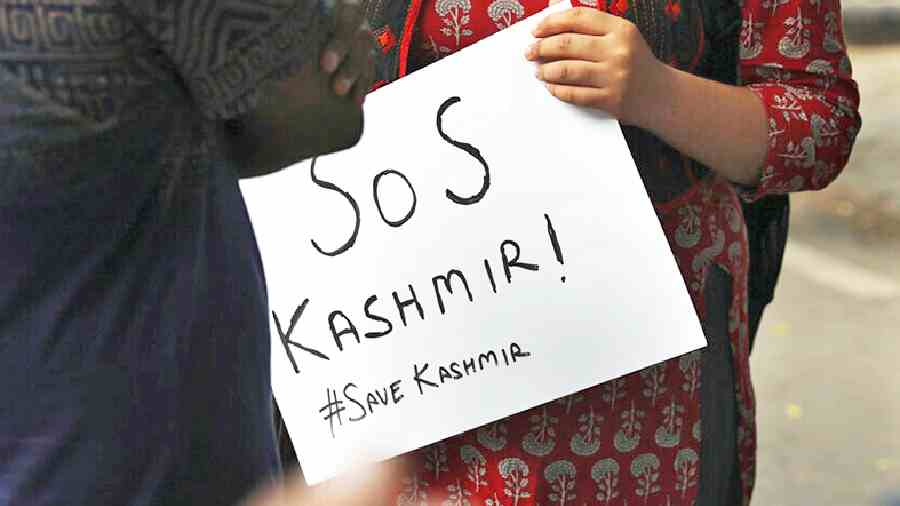Over three years have passed since the revocation of Article 370 and the concomitant loss of Jammu and Kashmir’s special status on August 5, 2019. The decision was criticised by a large number of individuals. But significant demonstrations against it were few. Protests or not, New Delhi arrested political leaders, including three former chief ministers, leaving the Kashmir Valley with a political void.
S.M. Altaf Bukhari, a former minister of Mehbooba Mufti’s Peoples Democratic Party government, established the Jammu and Kashmir Apni Party in March 2020 amidst the uncertainty. Bukhari had to walk a tightrope between two options: form a party that seeks ‘reinstatement of statehood, protection of Kashmiris’ jobs and their land rights’, or acknowledge popular emotions and fight for ‘pre-August 5 status’. The first alternative offered the possibility of ascent to power, aided by New Delhi’s backdoor generosity; the second option involved a protracted struggle. Bukhari decided to take the middle — moderate — ground. On Article 370, he stated that all parties must await the Supreme Court’s verdict.
The Centre’s invitation to the representatives of political parties from J&K for a meeting in New Delhi on June 24 was termed the most significant step to end the political impasse triggered by the abrogation of Article 370 and the bifurcation of the former state into two Union territories. There were many conjectures regarding New Delhi’s sudden invitation. Some said that New Delhi’s leadership had realised that the way Kashmir was being handled was untenable; others opined that New Delhi needed local support for the smooth implementation of the then ongoing delimitation process. Every invitee anticipated a favourable outcome to the meeting, but no changes were seen on the ground.
The People’s Alliance for Gupkar Declaration is no longer a formidable political force. It now consists off our out of the seven original political outfits with the Congress, Sajad Lone’sJammu and Kashmir’sPeople’s Conference and the Jammu and Kashmir’sPeople’s Movement quitting the coalition. The PAGD is a mere electoral alliance of two traditional political parties formed to safeguard their interests rather than restoring J&K’s special status.
The former chief minister of J&K, Ghulam Nab iAzad, launched his own party after ending his stint with the Congress. Political analysts say the Azad’s stand on Article 370 may not go down well in the Valley and could affect the electoral prospects of his party.
The people have lost faith in political parties since they did not defend J&K’s special status. But elections are crucial at this point and the regional parties, the PAGD in particular, recognise the significance of free and fair polls. The dynamics of the regional actors that have dominated the political scene would be an important aspect. The Bharatiya Janata Party will make every effort to weaken the regional actors to divide the vote. The rise of new parties would also influence the power sharing matrix of the regional actors.
The former state has been without an elected government for a while: June 2022 marked the completion of four years since the elected government fell. Since then, the erstwhile state has been under direct administration of the Centre. Even though the Central government has repeatedly promised that fair and free assembly elections would take place, nothing such has happened till now. What, however, remains central to Kashmir’s politics is the fluid dynamics of its regional actors, which have been a dominant force for decades. They may well hold the key.
Nasir Khuehami is the National Convenor of the J&K Students Association. Ummar Jamal is the National Spokesperson of the J&K Students Association











